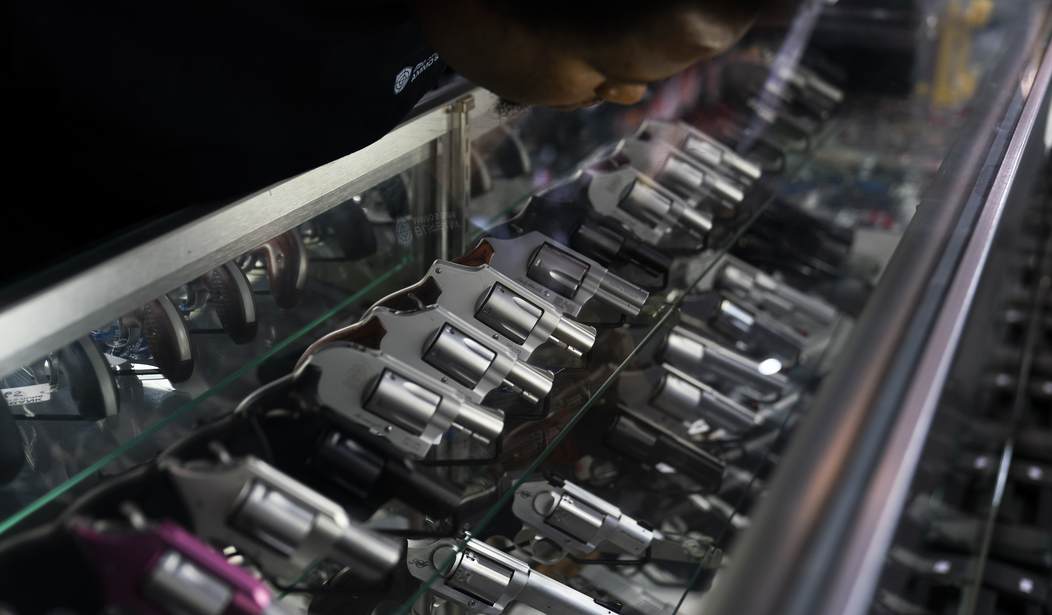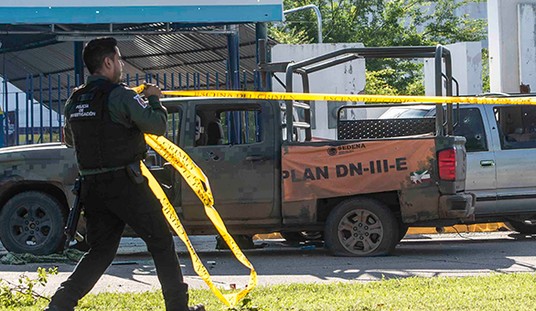A federal judge in California this week denied a request to block San Jose’s insurance mandate for gun owners and the annual fee that legal gun owners must pay to a third-party non-profit in order to lawfully possess firearms in the home from being enforced while the ordinances are being litigated, but that doesn’t mean that the laws are actually going to take effect next week as the city originally planned.
While San Jose Mayor Sam Liccardo talked awfully tough about defending the ordinances when they were approved earlier this year, the city council voted last month not to move forward with enforcing the new laws while they’re being challenged in court, which means that the insurance mandate and annual fee that gun owners must pay will still be on hold despite the judge’s refusal to grant an injunction.
The reason the judge gave for not imposing a legal hold on the insurance mandate, however, is sure to cheer gun control activists.
U.S. District Court Judge Beth Labson Freeman denied the gun organizations’ motion to issue a preliminary injunction, holding that at this early stage in the case, the insurance requirement bears sufficient resemblance to 19th century surety laws as to satisfy the Supreme Court’s standard for “historic consistency.”
I believe the judge, who was appointed to the bench by Barack Obama in 2014, is in error here. Justice Clarence Thomas did reference 19th century surety laws in the Bruen decision, but as he made clear, those laws were never intended to target every gun owner in a particular jurisdiction. From page 5 of the opinion:
In the mid-19th century, many jurisdictions began adopting laws that required certain individuals to post bond before carrying weapons in public. Contrary to respondents’ position, these surety statutes in no way represented direct precursors to New York’s proper-cause requirement. While New York presumes that individuals have no public carry right without a showing of heightened need, the surety statutes presumed that individuals had a right to public carry that could be burdened only if another could make out a specific showing of “reasonable cause to fear an injury, or breach of the peace.” Thus, unlike New York’s regime, a showing of special need was required only after an individual was reasonably accused of intending to injure another or breach the peace. And, even then, proving special need simply avoided a fee.
Surety laws were aimed at the bearing, not the keeping, of arms. Not only that, they were not imposed on every gun owner who wanted to carry for self-defense. These surety bonds were required only for those who had been “reasonably accused of intending to injure another or breach the peace.”
San Jose’s insurance mandate, on the other hand, applies to every legal gun owner who lives inside the city limits, and subjects them to penalties for keeping a gun in their home unless they’ve first purchased an insurance policy that covers accidental, and not criminal, misuse of a firearm. That’s nothing like the 19th century surety bonds that Judge Freeman cited as an historic analogue, and this could be an early case of how some courts are going to misread the Bruen decision just like they misread Heller in order to adopt a tiered-scrutiny approach to the constitutionality of gun laws that enables most laws to be upheld as long as the government claims there’s a public safety interest behind them.
Freeman also ruled that the fee mandate was not yet ready for review until the city sets a specific fee amount. She indicated that the imposition of a fee itself does not run afoul of the Second Amendment, because “the Supreme Court… expressly contemplated regulations that may permissibly include fee payments, so long as the fees were not so ‘exorbitant [so as to] deny ordinary citizens their right to public carry.’”
Again I think the judge is misreading the words of Justice Thomas. Here’s the entire footnote that Freeman cited:
To be clear, nothing in our analysis should be interpreted to suggest the unconstitutionality of the 43 States’ “shall-issue” licensing regimes, under which “a general desire for self-defense is sufficient to obtain a [permit].”
Because these licensing regimes do not require applicants to show an atypical need for armed self-defense, they do not necessarily prevent “law-abiding, responsible citizens” from exercising their Second Amendment right to public carry.
Rather, it appears that these shall-issue regimes, which often require applicants to undergo a background check or pass a firearms safety course, are designed to ensure only that those bearing arms in the jurisdiction are, in fact, “law-abiding, responsible citizens.” And they likewise appear to contain only “narrow, objective, and definite standards” guiding licensing officials, rather than requiring the “appraisal of facts, the exercise of judgment, and the formation of an opinion,” —features that typify proper-cause standards like New York’s.
That said, because any permitting scheme can be put toward abusive ends, we do not rule out constitutional challenges to shall-issue regimes where, for example, lengthy wait times in processing license applications or exorbitant fees deny ordinary citizens their right to public carry.
The annual fee that San Jose seeks to impose on legal gun owners has nothing to do with ensuring that those bearing (or keeping) arms in the city are law-abiding, responsible citizens. Under California’s draconian gun control laws, there’s no way for someone to legally purchase a firearm or ammunition unless they’ve already gone through a background check, so anyone subjected to this fee in San Jose is, by definition, going to be in legal possession of their guns.
Further, San Jose’s fee isn’t dedicated to running background checks or other efforts to document the legality of someone’s gun possession. Instead, the money is sent to a third-party non-profit that will be responsible for dispensing that cash to “gun violence prevention groups”. The city’s fee is nowhere close to being analogous to the fee that I had to pay to my local county so they could run a background check on me when I last renewed my concealed carry license, and Judge Freeman really seems to be grasping at straws to try to find some reason to uphold the city’s ordinance.
We’re still early on in this particular court case, but it’s troubling (to say the least) to see Freeman’s judicial reasoning at work here, and her decision is a reminder that despite the clear instructions from SCOTUS there are still going to be some activists on the bench who’ll misread or ignore the Bruen decision in an attempt to keep challenged gun laws in place. Bruen was and is a big deal, but it can’t be the last word from the Supreme Court when it comes to our right to keep and bear arms, or else we’ll continue to see lower courts run roughshod over the Second Amendment.









Join the conversation as a VIP Member